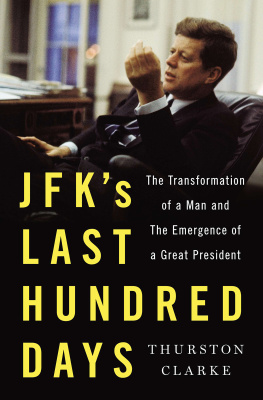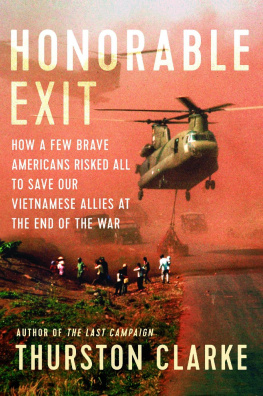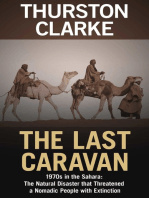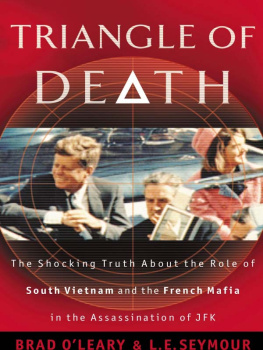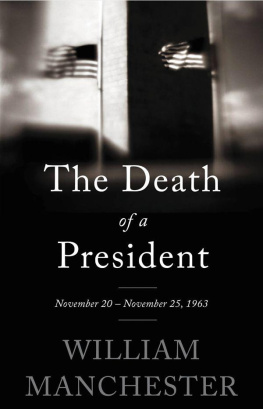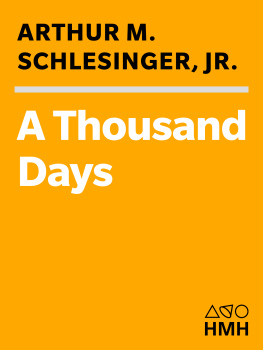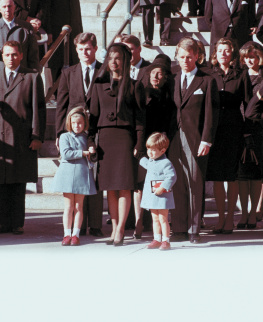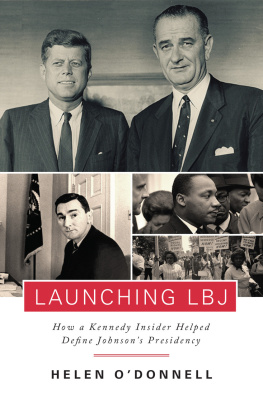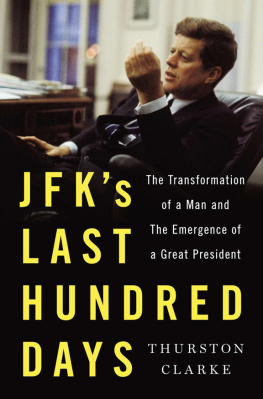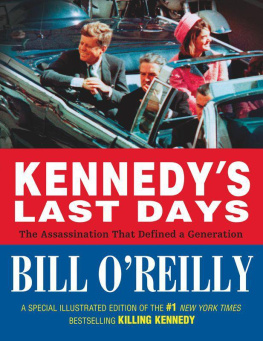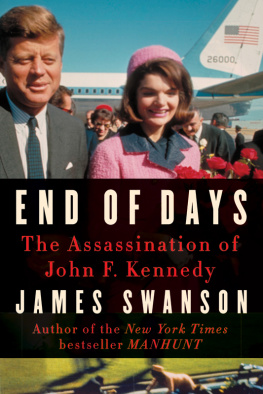Thurston Clarke - JFKs Last Hundred Days: The Transformation of a Man and the Emergence of a Great President
Here you can read online Thurston Clarke - JFKs Last Hundred Days: The Transformation of a Man and the Emergence of a Great President full text of the book (entire story) in english for free. Download pdf and epub, get meaning, cover and reviews about this ebook. year: 2013, publisher: Penguin Press HC, The, genre: Detective and thriller. Description of the work, (preface) as well as reviews are available. Best literature library LitArk.com created for fans of good reading and offers a wide selection of genres:
Romance novel
Science fiction
Adventure
Detective
Science
History
Home and family
Prose
Art
Politics
Computer
Non-fiction
Religion
Business
Children
Humor
Choose a favorite category and find really read worthwhile books. Enjoy immersion in the world of imagination, feel the emotions of the characters or learn something new for yourself, make an fascinating discovery.
- Book:JFKs Last Hundred Days: The Transformation of a Man and the Emergence of a Great President
- Author:
- Publisher:Penguin Press HC, The
- Genre:
- Year:2013
- Rating:4 / 5
- Favourites:Add to favourites
- Your mark:
JFKs Last Hundred Days: The Transformation of a Man and the Emergence of a Great President: summary, description and annotation
We offer to read an annotation, description, summary or preface (depends on what the author of the book "JFKs Last Hundred Days: The Transformation of a Man and the Emergence of a Great President" wrote himself). If you haven't found the necessary information about the book — write in the comments, we will try to find it.
Fifty years after his death, President John F. Kennedys legend endures. Noted author and historian Thurston Clarke argues that the heart of that legend is what might have been. As we approach the anniversary of Kennedys assassination, JFKs Last Hundred Days reexamines the last months of the presidents life to show a man in the midst of great change, finally on the cusp of making good on his extraordinary promise.
Kennedys last hundred days began just after the death of two-day-old Patrick Kennedy, and during this time, the president made strides in the Cold War, civil rights, Vietnam, and his personal life. While Jackie was recuperating, the premature infant and his father were flown to Boston for Patricks treatment. Kennedy was holding his sons hand when Patrick died on August 9, 1963. The loss of his son convinced Kennedy to work harder as a husband and father, and there is ample evidence that he suspended his notorious philandering during these last months of his life.
Also in these months Kennedy finally came to view civil rights as a moral as well as a political issue, and after the March on Washington, he appreciated the power of Reverend Martin Luther King, Jr., for the first time.
Though he is often depicted as a devout cold warrior, Kennedy pushed through his proudest legislative achievement in this period, the Limited Test Ban Treaty. This success, combined with his warming relations with Nikita Khrushchev in the wake of the Cuban missile crisis, led to a dtente that British foreign secretary Sir Alec Douglas- Home hailed as the beginning of the end of the Cold War.
Throughout his presidency, Kennedy challenged demands from his advisers and the Pentagon to escalate Americas involvement in Vietnam. Kennedy began a reappraisal in the last hundred days that would have led to the withdrawal of all sixteen thousand U.S. military
advisers by 1965.
JFKs Last Hundred Days is a gripping account that weaves together Kennedys public and private lives, explains why the grief following his assassination has endured so long, and solves the most tantalizing Kennedy mystery of allnot who killed him but who he was when he was killed, and where he would have led us.
Thurston Clarke: author's other books
Who wrote JFKs Last Hundred Days: The Transformation of a Man and the Emergence of a Great President? Find out the surname, the name of the author of the book and a list of all author's works by series.

